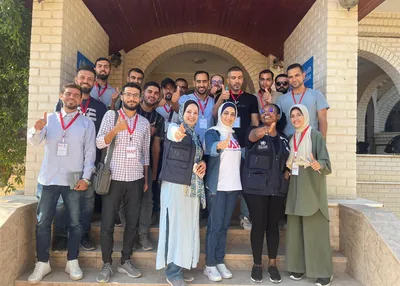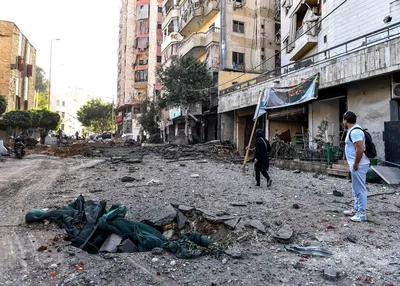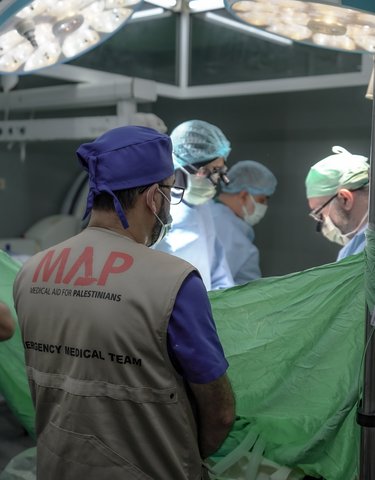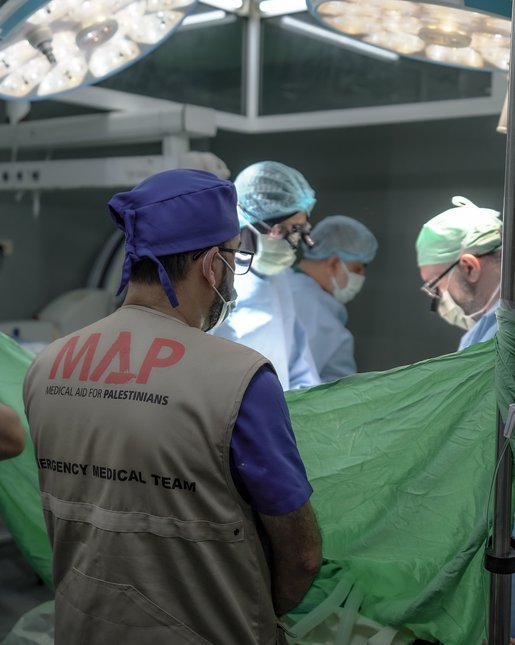One year after the Beirut explosion, Lebanon faces a deepening humanitarian crisis
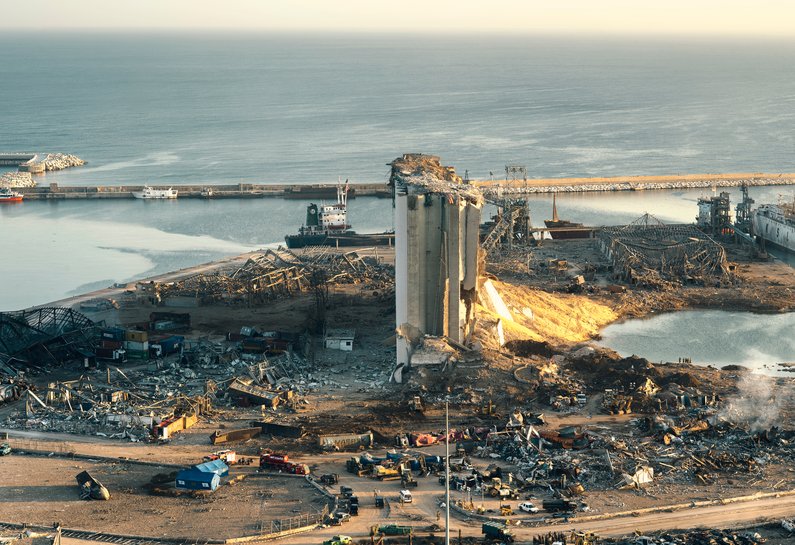
The Beirut explosion sent shockwaves across Lebanon’s capital. One year on, life has become almost unbearable for millions of Lebanese people and the 250,000 Palestinian refugees living in camps across the country.
More than 220 people were killed and 7,000 injured by the explosion. In the immediate aftermath, Medical Aid for Palestinians (MAP) responded by providing essential medical supplies to Palestinian Red Crescent Society hospitals treating the wounded.
One year on, the physical and psychological wounds left by the devastation still remain. Those responsible have faced no accountability. Rather than seeing recovery, a country once known as the “Switzerland of the East” for its financial power and stability is now experiencing its worst economic and humanitarian crisis in decades.
The local currency has lost more than 90% of its value, and inflation has exceeded 100%. With no proportional increase in wages, people’s purchasing power has collapsed. Absent an adequate response by Lebanon’s leadership, the crisis deepened and affected every sector in the country. Thousands of businesses have closed or downsized, sending unemployment soaring.
Commercial banks that lent depositors’ money in foreign currency to Lebanon’s central bank have faced a sharp liquidity problem and become unable to release depositors’ funds after the central bank defaulted. Many people have lost their lifesavings, and have no backup to withstand the resulting hardships.
Across the country people have experienced the inconvenience and humiliation of queuing in the burning sun for hours at fuel stations and 20-hour daily blackouts. Deteriorating economic conditions have led to increasing crime, violence including gender-based violence, and suicide. Demonstrations, sit-ins, and roadblocks have become commonplace, with people protesting poor living conditions and the corruption of the political leadership, but with no positive change in the situation.
A looming public health crisis
For some, the situation has now become life-threatening. Many essential medications, including those for treating chronic diseases, are no longer available in pharmacies, and their cost has skyrocketed with the lifting of government subsidies.
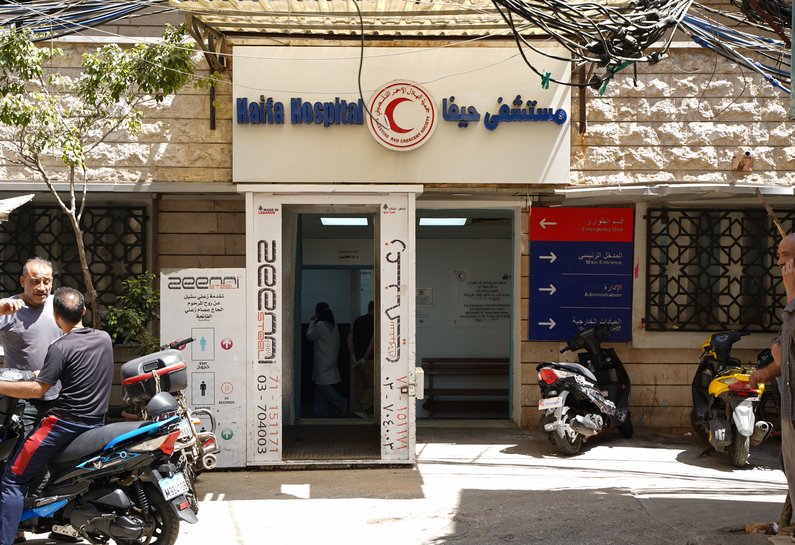
Hospitals are continuously warning that they will not be able to receive patients beyond emergency cases or operate essential services such as dialysis due to severe shortages in medical and financial resources. The health system has been further weakened by the emigration of more than 1,000 skilled doctors and nurses. UNICEF warns that 71% of Lebanon’s population are at immediate risk of losing access to safe drinking water.
With worsening food insecurity, widespread malnutrition is only one step away. Essential food items such as vegetables, grains, meat, eggs and oil have increased in price by more than 700%, and the minimum cost of food for a family of five is five times the national minimum wage. A recent UNICEF assessment reported that 77% of households do not have enough money to buy food, 60% had to buy food on credit or borrow money, and 30% of children went to bed hungry and skipped meals in the last month. Children in these circumstances are at high risk of poor health and nutrition, violence, exploitation, and restricted access to education. 15% of families in Lebanon have taken their children out of school and 10% of children have been sent to work.
Palestinian refugees among those worst hit
For the Palestinian refugee community in Lebanon, to whom I belong, economic hardships are chronic. The Lebanese government’s discriminatory policies and practices towards Palestinians, despite a decades-long forced presence in the country, has contributed to impoverishment and vulnerability to economic shocks. Their approach stems from the assumption that permitting Palestinians their rights in Lebanon would undermine their right to return to Palestine, though in fact the two do not contradict.
Two out of three Palestinian refugees lived below the poverty line before the economic crisis began, compared to only 28% of Lebanese people. With poverty rates doubling and extreme poverty tripling nationally, Palestinian refugees have been left exposed and struggling to secure their basic needs.
During my regular visits to households in Palestinian refugee camps, men often describe the impossibility of finding any work since the beginning of the crisis. Mothers share their difficulties securing food, clothes, and other basic items for their children. They tell me how bad they feel because their children are not having a “normal” childhood under these circumstances.
Despite the families’ struggles, I always feel the overwhelming warmth and care of parents prioritising the health and wellbeing of their children. I also feel their exceptional strength in refusing to give up hope ‒ though this is perhaps to be expected from a community which, after more than 70 years, continues to hold steadfastly its right to live freely in its homeland in Palestine.
MAP and our local partners have been working hard to mitigate the social and health impact of the crisis on refugees. We have been providing clinic- and community-based maternal and child health services, mental health and psychosocial support activities and programmes, and specialised services for people with disabilities.
We have also run multiple emergency response initiatives such as distributing nutritious food parcels and winter supplies for highly vulnerable families, supporting hospital costs for advanced life-saving surgeries, and providing essential medical supplies and personal protective equipment to Palestine Red Crescent Society hospitals. With your help, MAP is extending a genuine lifeline – and true solidarity – to Palestinian refugees enduring Lebanon’s growing crisis.
You can support our emergency response in Lebanon by making a donation today.
Photo: Aerial view of Beirut Port completely destroyed after a fire at a warehouse with explosives led to massive blasts in Beirut. (Credit: Diplomedia / Shutterstock.com).
Related content
